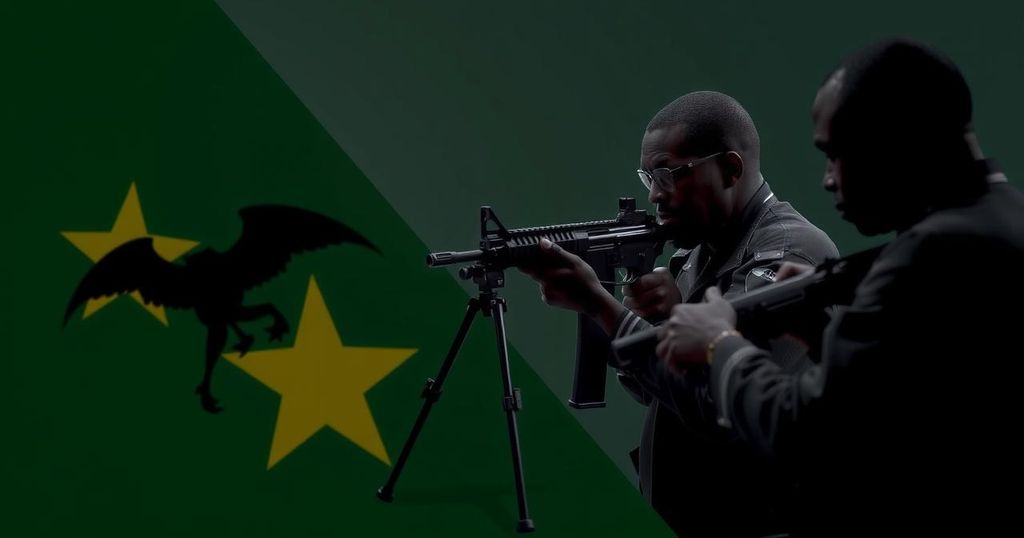Unveiling the Evasion: South Sudan’s Breach of the UN Arms Embargo
The UNSC arms embargo on South Sudan, effective since 2018, has not succeeded in preventing the government from illicitly acquiring weapons, as evidenced by a recent report detailing ongoing military supplies from foreign entities like the UAE. Key government officials are implicated in this arms trade, despite official denials. This situation exacerbates the human rights crisis in South Sudan, undermining the credibility of its government while the citizens continue to suffer from instability and lack of basic services.
The arms embargo imposed on South Sudan by the United Nations Security Council (UNSC) in 2018 aimed to curb ongoing violence and human rights violations by government forces. However, evidence has surfaced indicating that the South Sudanese government continues to illicitly procure weapons and military supplies. Notably, a report from 2023 revealed the involvement of senior government officials in facilitating arms shipments, illustrating the failure of the embargo to mitigate armed conflict and protect civilians. A recent instance involves the United Arab Emirates-based company, Dynamic Defense Solutions, which publicly announced a potential partnership to supply vehicles to the South Sudan Army. Despite denials from military officials regarding the existence of a deal, substantial evidence, including photographs of interactions between company representatives and military leaders, suggests otherwise. This contradiction raises serious questions about the transparency and accountability of the South Sudanese government. Additional reports indicate that arms transfers, including armored vehicles from the UAE and other suppliers, continue to violate the existing embargo. The situation reflects a broader crisis of credibility for the South Sudanese government, contributing to the ongoing suffering of its citizens amidst widespread poverty and insecurity.
Since the inception of South Sudan’s independence in 2011, the nation has struggled with internal conflicts, corruption, and human rights abuses. The UNSC imposed an arms embargo in July 2018 as a response to the escalating violence and the failure to adhere to peace agreements. The rationale behind the embargo was to ensure that arms did not exacerbate the conflicts and to protect civilians caught in the crossfire. However, systematic reports have emerged indicating that the government has found ways to bypass these restrictions, continuing the cycle of violence against its populace. This context underscores the necessity to examine the implications of arms trade and its regulation within a framework aiming for peace and stability in South Sudan.
In conclusion, the ongoing circumvention of the UN arms embargo by South Sudan raises urgent concerns about the effectiveness of international measures designed to promote peace and accountability. The evidence of government officials facilitating arms procurement, paired with the lack of accountability for human rights violations, highlights significant failures in governance. It is imperative that the international community reevaluates its approach to sanctions and engages more actively in holding the South Sudanese government accountable for its actions, while also addressing the humanitarian needs of its citizens.
Original Source: www.radiotamazuj.org




Post Comment